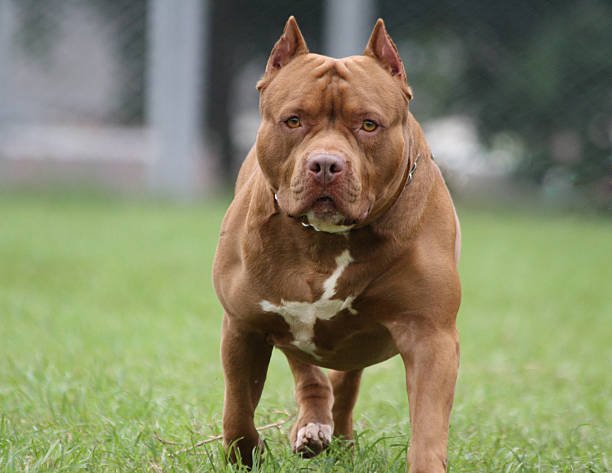The Pitbull: A Misunderstood Breed
The term “Pitbull” is a broad descriptor that often invokes a range of emotions and opinions. These dogs, officially recognized as the American Pit Bull Terrier, American Staffordshire Terrier, and Staffordshire Bull Terrier, have been at the center of controversy and misconceptions for decades. While some see them as loyal, affectionate companions, others view them with fear and suspicion. This divide is largely fueled by misconceptions, media portrayal, and, unfortunately, instances of irresponsible ownership. To truly understand Pitbulls, one must explore their history, temperament, and the realities of responsible ownership.
Origins and History
The history of the Pitbull dates back to the 19th century in the United Kingdom, where they were bred for bull-baiting and later for ratting. These dogs were prized for their strength, agility, and tenacity. As the Industrial Revolution unfolded, these dogs found their way to America, where they became popular on farms and were later used for various roles, including as catch dogs for cattle and hogs.
It is important to note that the early history of the Pitbull was not marked by aggression towards humans. In fact, these dogs were often referred to as “nanny dogs” due to their gentle and protective nature around children. The shift in perception began in the mid-20th century when irresponsible breeding and ownership practices led to instances of aggression.
Temperament and Traits
Contrary to popular belief, Pitbulls are not inherently aggressive towards humans. In fact, well-socialized and properly trained Pitbulls can be affectionate, loyal, and excellent family pets. Their intelligence, coupled with a desire to please their owners, makes them highly trainable. Like any breed, individual temperament varies, and factors such as genetics, early socialization, and training play a crucial role.
Pitbulls are known for their strength and athleticism, which makes them versatile working dogs. However, these same traits can lead to challenges if not channeled appropriately. Regular exercise, mental stimulation, and consistent training are key to ensuring a well-behaved and balanced Pitbull.
Media Influence and Stereotypes
Media portrayal has played a significant role in shaping public perception of Pitbulls. Sensationalized stories of Pitbull attacks make headlines, perpetuating the belief that these dogs are inherently dangerous. However, research indicates that breed-specific legislation, which targets certain breeds including Pitbulls, is not an effective way to reduce dog bites. In fact, it may divert attention from addressing the root causes of aggressive behavior, such as irresponsible ownership and lack of proper training.
Responsible ownership is a critical aspect of any dog’s behavior, regardless of breed. When raised in a loving and structured environment, Pitbulls can thrive as loyal and well-behaved companions. It is essential for potential owners to be aware of the commitment required to care for a Pitbull and to invest time and effort into training and socialization.
Advocacy and Education
Several organizations and advocacy groups are working to change public perceptions about Pitbulls. These groups focus on promoting responsible ownership, providing accurate information about the breed, and advocating against breed-specific legislation. By highlighting positive stories of well-behaved Pitbulls and educating the public on responsible ownership, these organizations aim to challenge stereotypes and promote a more balanced view of the breed.
Education is a powerful tool in dispelling myths about Pitbulls. When people understand the history, traits, and potential of these dogs, they are more likely to approach them with an open mind. Many Pitbull advocates emphasize the importance of judging dogs as individuals rather than based on their breed. This shift in mindset can lead to more responsible ownership practices and positive interactions between Pitbulls and the community.
Responsible Ownership
Owning a Pitbull comes with responsibilities that extend beyond providing food and shelter. Training, socialization, and proper care are essential components of responsible ownership. It is crucial for owners to understand their dog’s needs, invest time in training, and ensure proper socialization with people and other animals. In addition, spaying or neutering can contribute to a more stable temperament and reduce the likelihood of behavioral issues.
Responsible ownership also includes addressing factors that contribute to aggression in dogs, regardless of breed. This may involve identifying and addressing any health issues, providing regular veterinary care, and using positive reinforcement training methods. Moreover, secure containment measures, such as fenced yards and leashes, are essential to prevent unintended incidents.
Conclusion
In conclusion, the Pitbull is a breed that has been unfairly stigmatized and misunderstood. While they possess physical traits that make them powerful, with the right ownership and environment, Pitbulls can be loving and devoted companions. It is crucial to separate fact from fiction, acknowledge the importance of responsible ownership, and advocate for fair treatment of this breed.
By focusing on education, dispelling myths, and promoting responsible ownership practices, we can work towards a more inclusive and accurate understanding of Pitbulls. These dogs have the potential to be wonderful additions to families, bringing joy, loyalty, and companionship when given the opportunity to thrive in a loving and responsible environment.






[…] modern times, Newfoundlands continue to excel in water-related activities and competitions. They are often trained in water rescue scenarios and […]